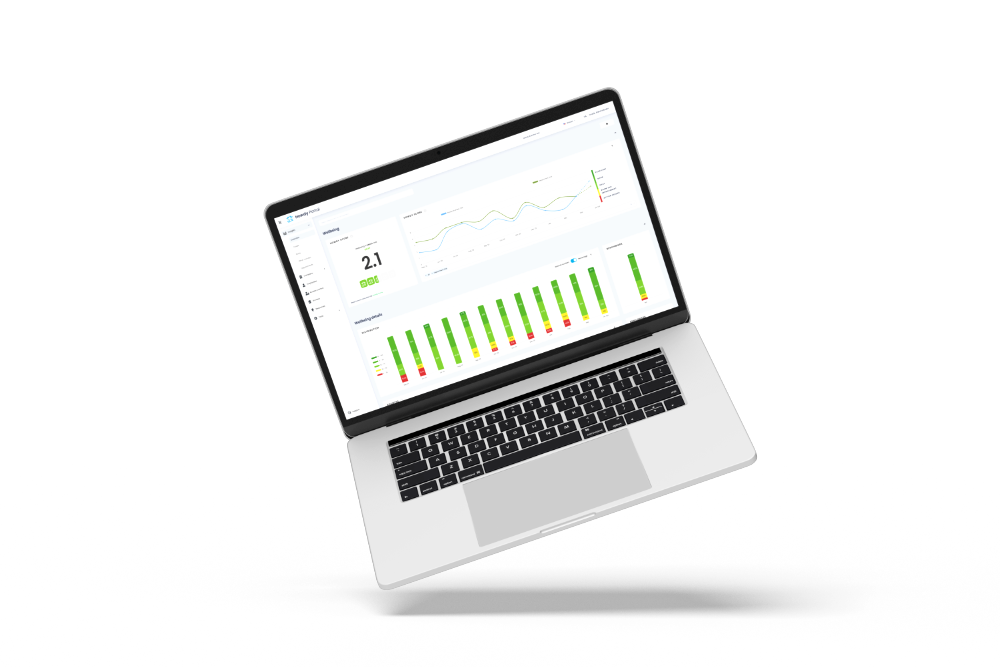ESG has become a central benchmark for evaluating companies. The increased attention on environmental, social, and ethical criteria is not only due to pressure from consumers and investors, but also because it is now a legal requirement.
Although ESG has long been a focus, there is now growing interest in the ‘S’ – the social aspect. The ‘S’ in ESG concerns a company’s relations with its employees, suppliers, customers, and the community. This covers a range of practices such as labour standards, working conditions, data protection, and privacy. It also involves diversity (race, gender, religion), inclusion, and the integration of individuals with disabilities.
What is ESG?
Howdy’s Role in the ESG Framework
Howdy is an essential tool for companies aiming to effectively meet the forthcoming demands of the social aspect in ESG. As a digital platform dedicated to improving wellbeing and the working environment for both employees and organisations, Howdy directly addresses and supports the social goals of ESG, contributing to the documentation and management of the ‘S’ in ESG. The preventative approach assists companies in identifying early signs of distress among employees, creating an environment open to taking proactive steps to prevent and alleviate wellbeing challenges.
How Howdy Supports ESG’s Social Criteria:
Proactive Wellbeing Measures: Howdy enables the detection of mental and physical challenges among employees at an early stage. This approach not only benefits individual health but also fosters sustainable and productive teams, positively reflecting on ESG’s social pillar.
Enhancing Work Culture: By stimulating regular dialogue and reflection, Howdy supports a positive work culture that prioritises individual employee wellbeing and provides insights into overall organisational wellbeing. This is crucial to meeting the social commitments outlined by ESG criteria and demonstrates a commitment to employee wellbeing.
Monthly Reporting: Company management can use Howdy’s anonymous wellbeing data for monthly reporting, thereby demonstrating concrete action and results in fulfilling ESG’s social requirements. By integrating this data into monthly ESG reports, companies can transparently and measurably show both potential customers and future employees, among other stakeholders, how they are actively working to improve both individual and organisational wellbeing.

Implementation of ESG: Important Dates for Companies
ESG criteria are taking on a very central role in corporate accountability, making it important for companies to understand the timeline and methods for implementing these standards. The introduction of ESG reporting requirements marks a step towards more transparent, accountable, and sustainable corporate practices.
Here is an overview of the key ESG milestones and what they mean for companies of different sizes:
- From 1 January 2024, publicly listed companies with more than 500 employees must begin reporting on their sustainability and climate impact from 2025 onwards.
- From 1 January 2025, other large companies meeting two out of three criteria – a balance sheet total of 156 million DKK, a net turnover of 313 million DKK, or a workforce of 250 – must begin reporting from 2026 onwards.
- From 1 January 2026, publicly listed SMEs must start their reporting from 2027 onwards.
It is important to note that while the timeline initially only includes the largest companies, these large companies are obligated to report on behalf of their value chain. Thus, documentation requirements from large companies towards smaller ones will already start this year (2024).
Non-compliance with the new ESG requirements can have serious consequences for companies, such as legal repercussions, financial risks, operational challenges, and potentially damaging the company’s reputation. Therefore, it is crucial that companies understand the consequences and make the right decisions to comply with ESG standards and promote responsible business practices.
As the world moves towards stricter ESG requirements, it is essential that companies understand and embrace these changes, especially the social aspect, which plays a central role. Incorporating Howdy into an organisation’s strategy can be a significant factor in addressing the social criteria of ESG, and by prioritising wellbeing, companies can not only comply with new legal requirements but also cultivate a more inclusive, healthy, and sustainable business model.
Learn more about how Howdy can help you strengthen the ‘S’ in ESG.


